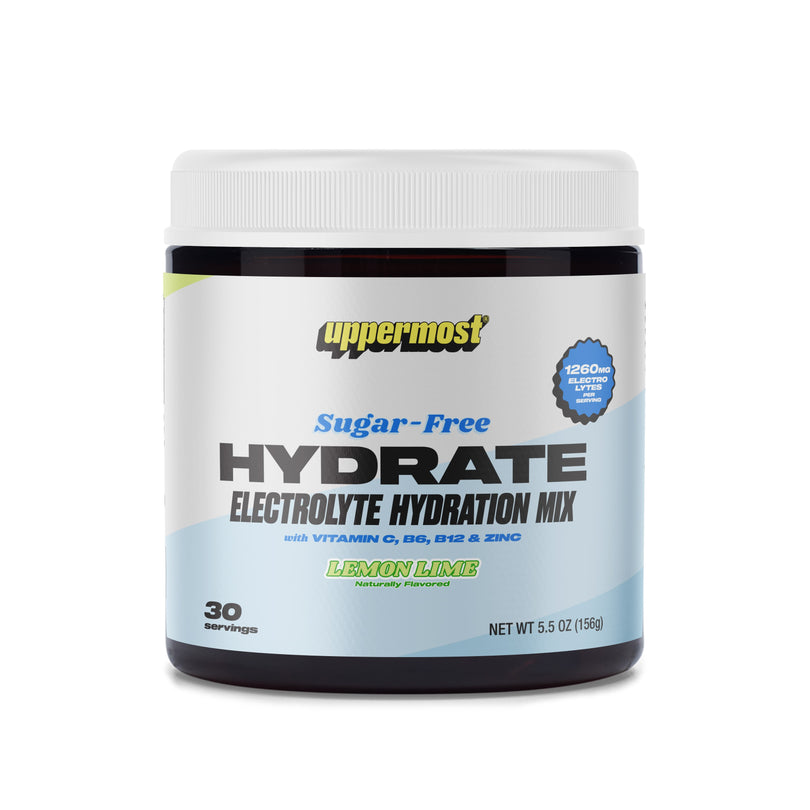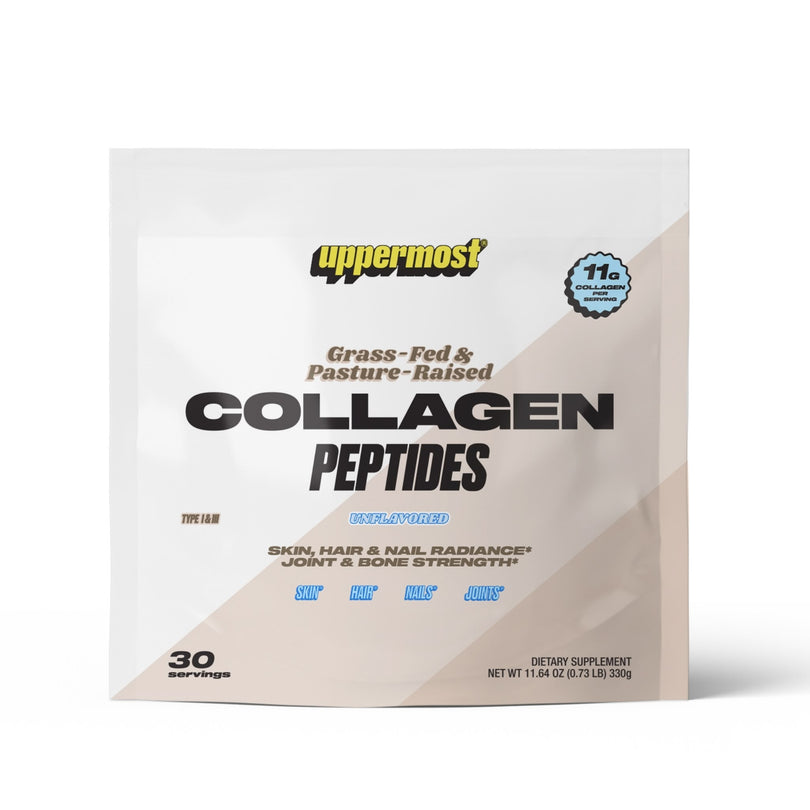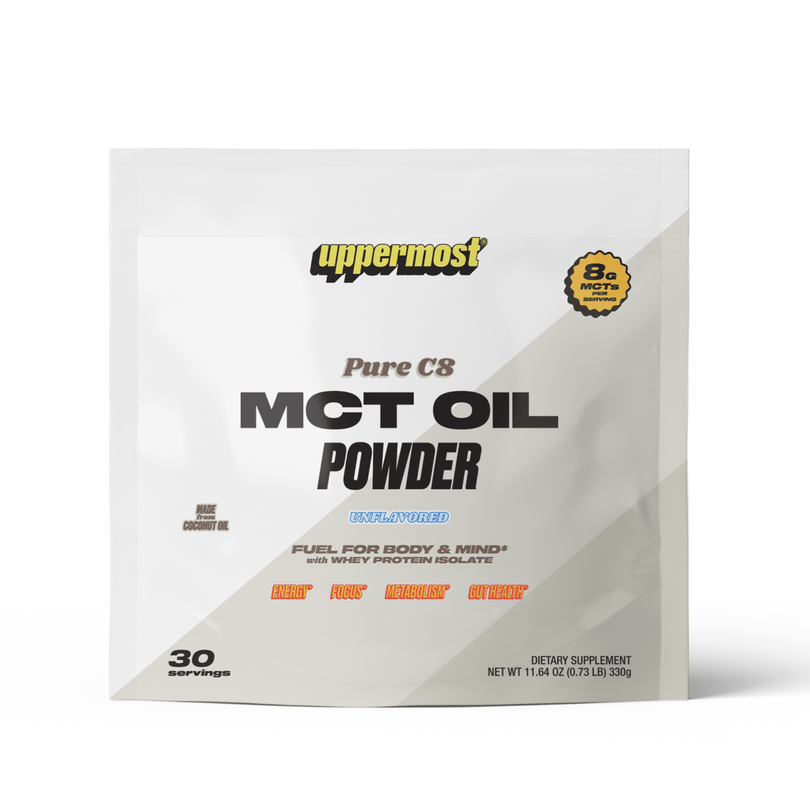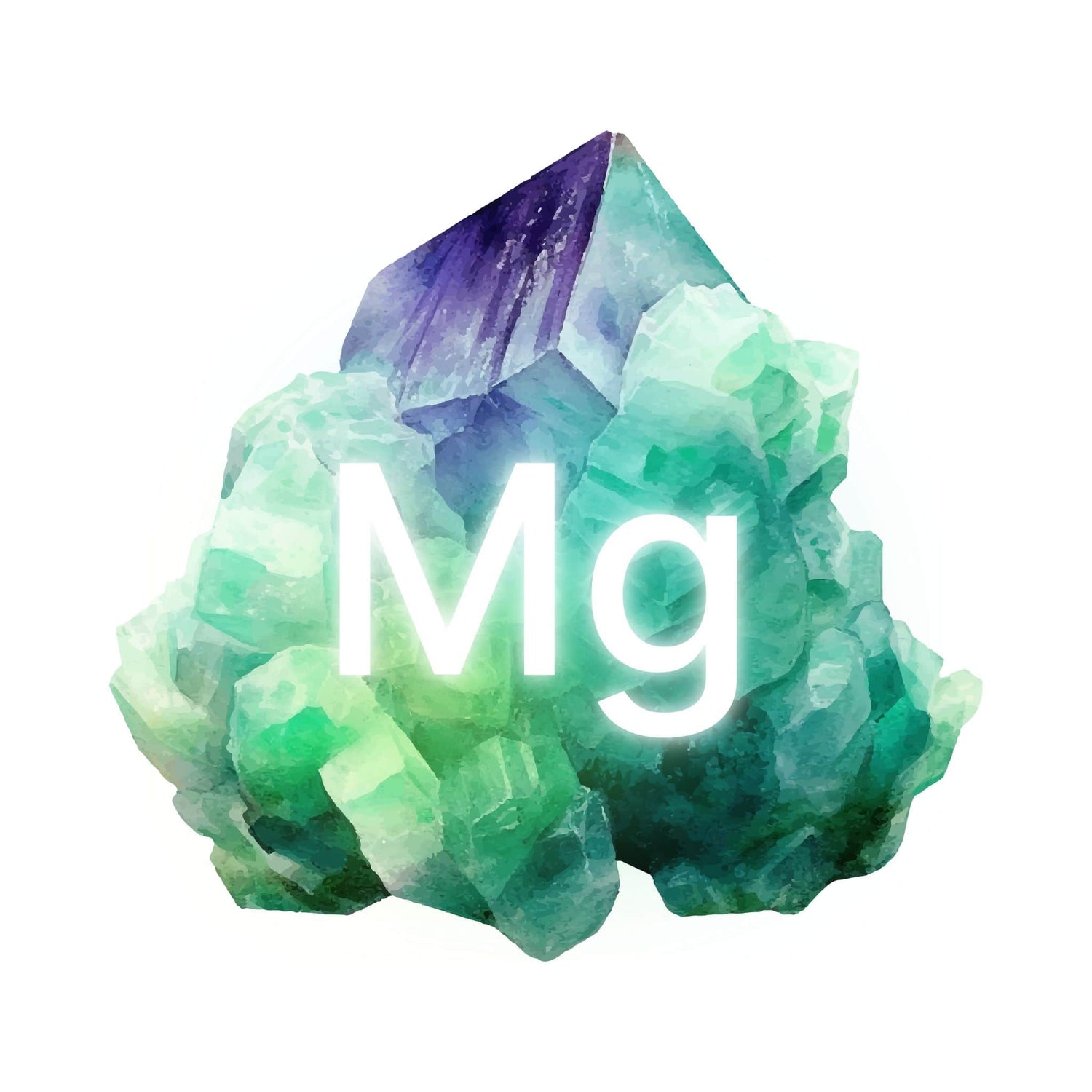Magnesium plays a crucial role in human health. It is involved in over 300 enzymatic processes in the body, contributing to energy production, muscle function, nerve transmission, and the regulation of blood pressure. Despite magnesium's importance, studies show that a large portion of the population doesn't get enough of it from their diet. Magnesium deficiency can lead to various health issues, which is why magnesium supplementation has become increasingly popular.
In this blog, we will dive deep into the importance of magnesium, its benefits, the various forms available for supplementation, and why magnesium glycinate is considered one of the most effective and bioavailable forms. We’ll also introduce Uppermost’s Magnesium Glycinate product, which offers a high-quality, easily absorbable solution to help you maintain optimal magnesium levels.
What is Magnesium, and Why is it Important?
Magnesium is a mineral that is essential for numerous biochemical processes in the body. It helps regulate muscle and nerve function, blood sugar levels, and blood pressure. Magnesium also plays a significant role in bone development and supports the body’s immune system.
Here are some of the key functions of magnesium:
-
Energy Production: Magnesium is involved in ATP (adenosine triphosphate) production, which is the body's primary energy currency. Without magnesium, your cells wouldn’t have the energy to function properly.
-
Muscle and Nerve Function: Magnesium acts as a natural calcium blocker, which helps relax muscles after they contract. It also plays a role in nerve transmission by stabilizing the nerve cells.
-
Bone Health: Magnesium contributes to bone density, and a deficiency may lead to weakened bones. It also helps activate vitamin D, which is crucial for calcium absorption.
-
Heart Health: Magnesium helps maintain a steady heart rhythm and relaxes the blood vessels, which can lower blood pressure and reduce the risk of heart disease.
-
Mood and Mental Health: Magnesium is important for mood regulation. Studies have shown that low magnesium levels may contribute to mood disorders like anxiety and depression.
Given these wide-ranging roles, it is clear that maintaining adequate magnesium levels is critical for overall health and wellness. Unfortunately, magnesium deficiency is common due to various factors such as poor dietary habits, chronic stress, and increased magnesium excretion from the body due to conditions like diabetes.
Symptoms of Magnesium Deficiency
Magnesium deficiency, also known as hypomagnesemia, is often overlooked because its symptoms can be mistaken for other health issues. Here are some common signs of magnesium deficiency:
- Muscle cramps and spasms
- Fatigue and weakness
- Nausea and vomiting
- Loss of appetite
- Abnormal heart rhythms
- Anxiety, irritability, and depression
- Difficulty sleeping or insomnia
- Migraines or frequent headaches
If you experience any of these symptoms, it may be worth considering magnesium supplementation, particularly in a highly bioavailable form like magnesium glycinate.
Magnesium Supplementation: Why It Matters
While magnesium is present in various foods, many people still don't meet their daily recommended intake. Foods rich in magnesium include:
- Leafy green vegetables (spinach, kale)
- Nuts and seeds (almonds, pumpkin seeds)
- Legumes (black beans, lentils)
- Whole grains (brown rice, oats)
- Fish (salmon, mackerel)
Despite these sources, magnesium intake can fall short due to factors such as:
-
Depleted Soil: Modern farming practices have depleted soil of essential minerals like magnesium, resulting in lower magnesium levels in crops.
-
Poor Diet: Processed foods that are low in magnesium are common in many people’s diets, leading to insufficient intake.
-
High-Stress Levels: Stress can increase the body’s need for magnesium. Additionally, magnesium is often excreted in higher amounts during periods of stress.
-
Age: As people age, their ability to absorb magnesium decreases, making supplementation even more necessary for older adults.
This is where magnesium supplements come into play, offering a convenient and effective way to ensure that you’re meeting your body’s needs. But not all magnesium supplements are created equal, and that’s where the form of magnesium you take becomes crucial.
The Different Forms of Magnesium Supplements
Magnesium supplements are available in several forms, each with varying levels of absorption and effectiveness. Here are some of the most common forms:
-
Magnesium Oxide: This is one of the most common and affordable forms of magnesium, but it has a low absorption rate and can cause digestive issues like diarrhea.
-
Magnesium Citrate: Magnesium citrate is a more bioavailable form than magnesium oxide and is often used to relieve constipation due to its mild laxative effect.
-
Magnesium Chloride: This form is highly absorbable and is often used in topical applications, such as magnesium oils and lotions.
-
Magnesium Malate: Known for its ability to support energy production, magnesium malate is often recommended for people dealing with fatigue or fibromyalgia.
-
Magnesium Taurate: This form is often used to support heart health because it combines magnesium with taurine, an amino acid beneficial for cardiovascular function.
-
Magnesium Glycinate: Considered one of the most bioavailable and well-tolerated forms, magnesium glycinate is bound to the amino acid glycine, making it gentle on the stomach and less likely to cause digestive upset. This form is particularly beneficial for people looking to improve sleep quality and reduce anxiety, as glycine has calming effects on the nervous system.
Why Magnesium Glycinate is Superior
Among the various forms of magnesium, magnesium glycinate stands out as one of the best options for supplementation due to its high bioavailability and tolerability. Here’s why magnesium glycinate is often preferred:
-
High Absorption: Magnesium glycinate is chelated, meaning it’s bound to an amino acid (glycine). This structure helps the body absorb it more efficiently, making it one of the most bioavailable forms of magnesium.
-
Gentle on the Stomach: Unlike other forms like magnesium oxide or citrate, magnesium glycinate is less likely to cause digestive issues like diarrhea. This makes it an excellent choice for people with sensitive stomachs.
-
Calming Effects: Glycine, the amino acid bound to magnesium in this form, has calming properties that can support sleep and reduce stress. This makes magnesium glycinate particularly effective for people dealing with anxiety, insomnia, or high stress levels.
-
Muscle Relaxation: Magnesium’s role in muscle function is well-documented, and magnesium glycinate is particularly effective at reducing muscle cramps and spasms due to its high absorbability and gentle nature.
-
Heart Health: Because of its calming effect on the nervous system and ability to regulate muscle contractions, magnesium glycinate can also support cardiovascular health by promoting relaxation of the blood vessels and improving circulation.
Who Should Consider Magnesium Glycinate?
Magnesium glycinate is ideal for anyone looking for a highly absorbable, well-tolerated form of magnesium that provides a range of health benefits. It is especially beneficial for:
-
People with Magnesium Deficiency: If you’ve been diagnosed with magnesium deficiency or suspect you’re not getting enough magnesium from your diet, magnesium glycinate is one of the best supplements to restore your levels.
-
Individuals with Digestive Sensitivities: If you’ve experienced digestive discomfort with other forms of magnesium, magnesium glycinate is a gentler option.
-
Those with Stress or Sleep Issues: Due to the calming effects of glycine, magnesium glycinate is a good choice for people dealing with anxiety, stress, or sleep problems.
-
Athletes and Active Individuals: Athletes or people who exercise regularly may require more magnesium to support muscle function and recovery. Magnesium glycinate can help prevent muscle cramps and promote muscle relaxation.
Introducing Uppermost Magnesium Glycinate
Uppermost is excited to introduce our high-quality Magnesium Glycinate supplement, designed to provide you with optimal magnesium levels in a form that’s gentle on your stomach and highly absorbable. Our product is made with premium ingredients and is free from unnecessary fillers, ensuring that you get the best possible results from your supplementation.
Uppermost Magnesium Glycinate offers:
- High Bioavailability: Easily absorbed by the body to maximize the benefits of magnesium.
- No Digestive Discomfort: Gentle on the stomach, making it ideal for daily use.
- Stress and Sleep Support: Promotes relaxation, reduces stress, and enhances sleep quality.
- Muscle and Nerve Support: Helps reduce muscle cramps and spasms while supporting nerve function.
If you’re ready to experience the benefits of magnesium supplementation, trust Uppermost Magnesium Glycinate to provide you with the support your body needs. Try it today and take the first step towards better health and wellness.
Conclusion
Magnesium is an essential mineral that plays a critical role in many bodily functions, from energy production to muscle relaxation. While many people don’t get enough magnesium through diet alone, supplementation can help bridge the gap. Among the different forms of magnesium supplements, magnesium glycinate stands out due to its high absorption rate, gentle nature, and numerous health benefits. Uppermost Magnesium Glycinate offers a top-quality, highly absorbable option to help you meet your daily magnesium needs.
By incorporating magnesium glycinate into your wellness routine, you can support better overall health, reduce stress, improve sleep, and maintain healthy muscle and nerve function.






